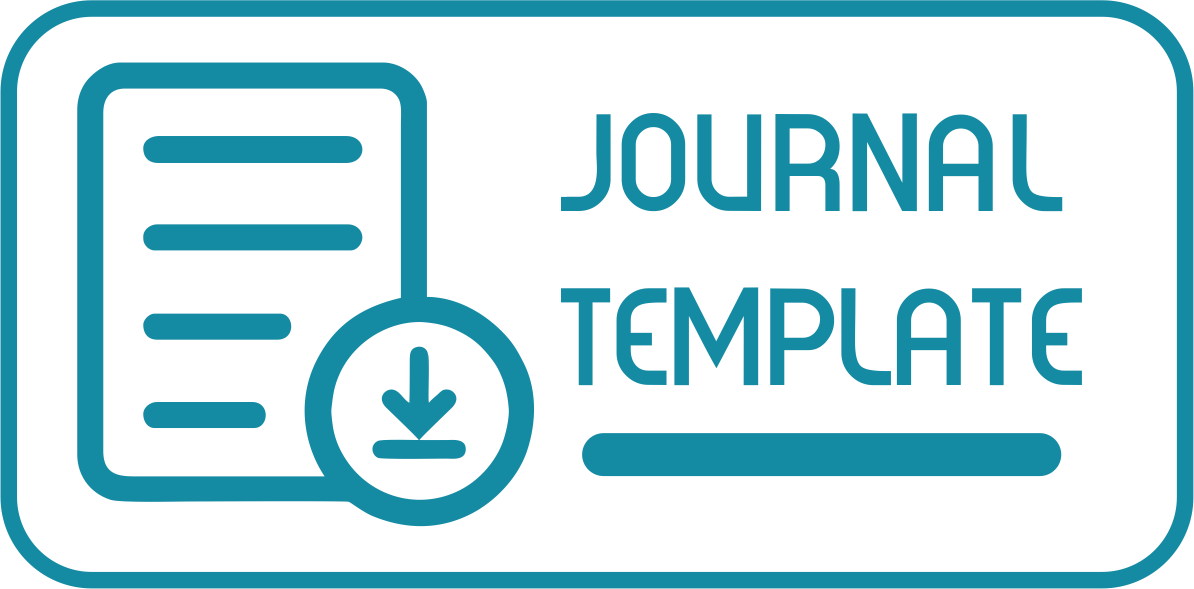DOES RELIGIOSITY MAKE INDONESIAN MUSLIM HAPPIER? NEW EVIDENCE FROM IFLS-5
DOI:
https://doi.org/10.35897/intaj.v8i2.1611Keywords:
IFLS-5, Happiness, Religiosity, Logit, MuslimAbstract
This study provides a different view of the determinants of happiness. In principle, happiness is driven by economic factors and each individual's perspective in assessing his life, which is more subjective. Therefore, the religiosity factor is also considered to have an essential role in encouraging one's happiness. This study aims to empirically prove the role of religiosity in the happiness of Muslims in Indonesia. This quantitative research approach uses data from the 5th Indonesia Family Life Survey (IFLS-5). This study applied a logistic regression model and took 767 respondents. The results show that religiosity, implemented by piety/obedience and recitation, is empirically proven to increase Indonesian Muslims' happiness. In addition, economic factors represented by income also play a role in increasing happiness. Other results show that individual characteristics such as higher education, marital status, and gender impact happiness. Meanwhile, age does not affect happiness.
Downloads
References
Akerlof, G. A., & Kranton, R. E. (2000). Economics and identity. The quarterly journal of economics, 115(3), 715-753.
Aryogi, I. & Wulansari, D. (2016). Subjective Well-being Individu dalam Rumah Tangga di Indonesia. Jurnal Ilmu Ekonomi Terapan, 01(1): 1-12.
[BPS] Badan Pusat Statistik. (2017). Indeks Kebahagiaan 2017. https://www.bps.go.id
Clark, A. E. (2018). The Origins of Happiness: The Science of Well-Being over The Life Course. https://doi.org/10.1017/CBO9781107415324.004
Diener, E., & Biswas-Diener, R. (2001). Will Money Increase Subjective Well-being? Social Indicators Research, 57(2):119-169.
Diener, E., & Seligman, M. E. P. (2004). Beyond Money: Toward an Economy of Well-Being. Psychological Science in the Public Interest, 5(1), 1–31. https://doi.org/10.1111/j.0963-7214.2004.00501001.x
Domínguez, R., & López-Noval, B. (2021) Religiosity and Life Satisfaction Across Countries: New Insights from the Self-Determination Theory. J Happiness Stud 22, 1165–1188. https://doi.org/10.1007/s10902-020-00268-y
Easterlin, R. A. (1974). Does Economic Growth Improve the Human Lot? Some Empirical Evidence. In Nations and Households in Economic Growth. https://doi.org/10.1016/b978-0-12-205050-3.50008-7.
Forgeard, M. J. C., Jayawickreme, E., Kern, M. L., & Seligman, M. E. P. (2011). Doing the right thing: Measuring wellbeing for public policy. 1, 79–106. https://doi.org/10.5502/ijw.v1i1.15
Frey, B. S., & Stutzer, A. (2002). What Can Economists Learn from Happiness Research? Journal of Economic Literature, 40, 402–435. https://doi.org/10.1257/jel.40.2.402
Frey, B. S., & Stutzer, A. (2018). Economics of Happiness. Springer International Publishing.
Gasper, D. (2010). Understanding the diversity of conceptions of well-being and quality of life. Journal of Socio-Economics, 39(3), 351–360. https://doi.org/10.1016/j.socec.2009.11.006
Gujarati, D.N. & Porter, D.C. 2009. Dasar-dasar Ekonometrika, Buku 2 Edisi-5. Terjemahan oleh Raden Carlos Mangunsong. 2012. Jakarta: Salemba Empat.
Hamim, K. (2016). Kebahagiaan Dalam Perspektif Al-Qur’an dan Filsafat. Tasamuh, 13 (2), 127-149.
Harahap, D. (2015). Kebahagiaan Dan Akhir Kehidupan Menurut Filsafat Ekonomi Islam. Human Falah, 2(2), 83-101.
Helliwell, J., Layard, R., & Sachs, J. (2015). World Happiness Report 2015. http://eprints.lse.ac.uk/47487/
Januari, A. T., & Imam, M. K. (2023). Does Religious Obedience Affect Happiness? The NU Muslims Indonesian Case. Journal of Islamic Civilization, 5(1), 1–13. https://journal2.unusa.ac.id/index.php/JIC/article/view/2661
Landiyanto, E. A., Ling, J., Puspitasari, M., & Irnanto, S. E. (2011). Wealth and Happiness: Empirical Evidence from Indonesia. Chulalongkorn Journal of Economics, 23, 1–17.
Lu, L. & Gilmour, R. (2004). Culture and conceptions of happiness: individual oriented and social oriented swb. Journal of Happiness Studies 5, 269–291. https://doi.org/10.1007/s10902-004-8789-5
Mayasari, R. (2014). Religiusitas Islam dan Kebahagiaan (Sebuah Telaah dengan Perspektif Psikologi). Al-Munzir, 7(2), 81-100.
Nandini, D. & Afiatno, B.E. (2020). Determinants of Subjective Well-Being: Evidence of Urban Indonesia. Jurnal Ekonomi Pembangunan, 18(1): 1-16.
Pontarollo, N., Orellana, M. & Segovia, J. (2020). The Determinants of Subjective Well-Being in a Developing Country: The Ecuadorian Case. J Happiness Stud 21, 3007–3035. https://doi.org/10.1007/s10902-019-00211-w
Putri, E.I.S. & Prasetyani, D. (2021). New Evidence of Individual Level of Happiness in Indonesia: Does Easterlin Paradox Matter? Jurnal Ekonomi dan Studi Pembangunan, 13(1): 60-71. http://dx.doi.org/10.17977/um002v13i12021p060
Pyndick, R. S., & Rubinfeld, D. L. 2013. Microeconomics Eight Edition. New Jersey: Pearson.
Rahayu, T. P. (2016). Determinan kebahagiaan di indonesia. Jurnal Ekonomi Dan Bisnis, 19(1), 149–170.
RAND Labor and Population Corporation. 2004. Indonesia Family Life Survey 5th wave. United States: Rand Corp. (9 Januari 2023) https://www.rand.org/well-being/social-and-behavioral-policy/data/FLS/IFLS/ifls5.html
Rojas, M., & Watkins-Fassler, K. (2022) Religious Practice and Life Satisfaction: A Domains-of-Life Approach. J Happiness Stud 23, 2349–2369. https://doi.org/10.1007/s10902-022-00510-9
Sacks, D. W., Stevenson, B., & Wolfers, J. (2012). The new stylized facts about income and subjective well-being. Emotion, 12(6), 1181–1187. https://doi.org/10.1037/a0029873.
Sen, A. & Nussabaum, M. 2003. The Quality of Life. Oxford Scholarship Online.
Sexton, R. L., Fortura, P. N., & Kovacs, C. C. (2016). Exploring Microeconomics Fourth Canadian Edition. Canada: Nelson Education Ltd.
Sirgy, M. J. 2002. The psychology of quality of life. Dordrecht: Kluwer Academic Publishers.
Sodiq, A. (2015). Konsep Kesejahteraan Dalam Islam. Ekuilibrium, 3(2), 380-405.
Sofia, N. & Sari, E.P. (2018). Indikator Kebahagiaan (Al-Sa’adah) dalam Perspektif Alquran dan Hadis. Psikologika: Jurnal Pemikiran dan Penelitian Psikologi. 23(2), 91-108.
Sohn, K. 2010. Considering Happiness For Economic Development: Determinants of Happiness in Indonesia (No. 10–09). Seoul.
Tiliouine, H. Cummins, R.A & Davern. (2009) Islamic religiosity, subjective well-being, and health. Mental Health, Religion & Culture, 12(1), 55–74.
Todaro, M.P. 2011. Pembangunan Ekonomi Edisi Kesebelas, jilid 1. Jakarta: Erlangga.
Downloads
Published
How to Cite
Issue
Section
License
Copyright (c) 2024 Muhammad Kholisul Imam, Anas Tania Januari

This work is licensed under a Creative Commons Attribution-NonCommercial 4.0 International License.







